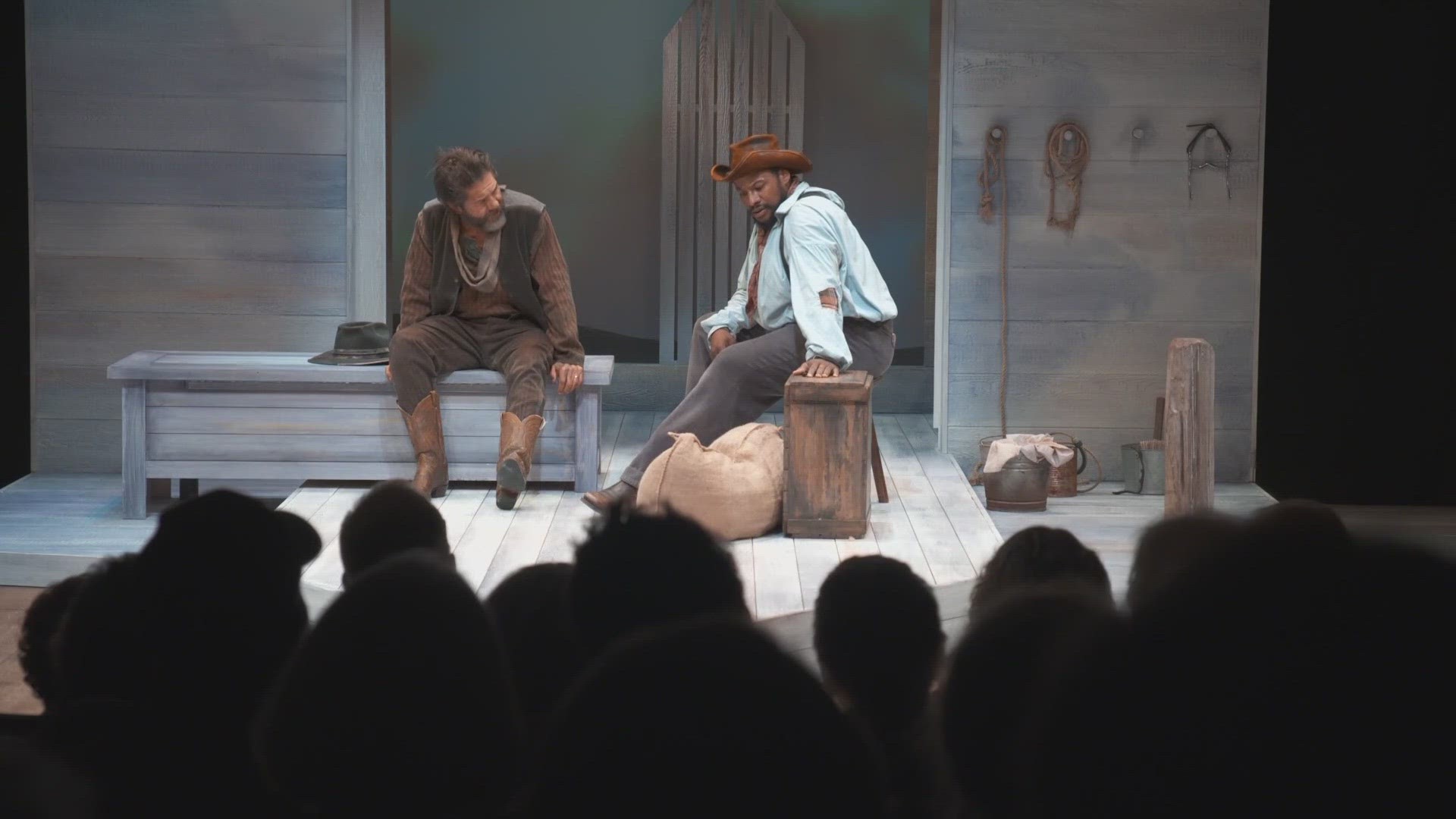SEATTLE — For Black actors, the path to the spotlight can be challenging.
“I think theaters get into this sort of rhythm of programming their plays, where it can be like, 'Oh, we're doing like the one Black show this season,” said Andrew Lee Creech, the creator of Last Drive to Dodge. “If you don't get that role, then your opportunities to act for that entire season are sort of limited. And then on top of that, the roles that we're then getting, are kind of like, I'm not really seeing the authenticity, I'm not really seeing, like myself represented how I want to be represented.”
That reality pushed Creech to stop acting and start writing to create more lead roles for Black actors. Creech grew up in Columbia City and said it’s important to tell his stories in his community to create spaces for Black people to be seen.
Creech's latest play, Last Drive to Dodge, is the start of a series of plays highlighting Black people throughout American history.
“This is like the time where the American ideals are like really taking hold,” Creech said. “I wanted to explore this period of transition, but through Black lens in this time period, that is typically whitewashed in our cultural awareness of the Old West.”
Andrew thanked The Hansberry Project for helping bring this vision to life. Since 2006, the organization has been giving Black artists a space for expression.
“We support any theater that is putting up a Black show, that is showcasing the work of Black playwrights and hiring and giving work to Black theatre artists and technicians, and designers,” said Valerie Curtis-Newton, the director of the play.
Curtis-Newton also co-founded The Hansberry Project, which was named after Lorraine Hansberry, the first Black woman to have a play performed on Broadway.
She said sometimes that support means paying for health care or advertising, not only in Seattle but across the country.
“I think that when I'm doing Hansberry work, I don't think about it," Curtis-Newton said. "But when I have moments like this, where to hear Andrew talk about his feeling that Hansberry has been in his corner. It's very, very gratifying. I look around and I see the people that we've helped get their equity card, I see people that we've helped get more performances than one, and how our investment has lifted those boats.”
In 2020, the Asian American Performers Action Coalition released a visibility report revealing that the BIPOC community was severely under-represented.
Only 29% of roles were for Black people during 2018-2019, the last full season before the COVID-19 shutdown.
“Historically, from the beginning, Black folks have been, have had a tense relationship with the American Theatre," Curtis-Newton said. "The African Grove theatre was the first. They were indirect head-to-head competition with a with a white professional theatre. And racism was used as a tactic to keep it small and, and eventually turn it out of business. So, we were pushed out and decided, well, if we can't do what you're doing, the way you're doing it, we'll make it for ourselves.”
The Hansberry Project is hoping to change those numbers one play at a time.
In a city like Seattle, filling the seats with more Black faces is a difficult task.
“I think that the important thing for us to remember is that when we think of an all-Black space, we do think of church, we think of coming in and seeing a sea of Black faces," Curtis-Newton said. "But, when the Hansberry Project started in 2004, we had just done the 2000 Census. And at that point, Black folks were I think, 8% of the population."
Since then that number has declined to 6.8% according to the 2020 Census.
No matter who is in the audience their goal is to make sure that Black people are showcased in their full humanity.
“I’ve had Black women come up to me specifically in tears feeling like they have been seen and represented,” Creech said. “Which to me is like the biggest compliment, bump what the reviews say, to me that is like okay, we're doing well, we're doing what we set out to do.”

